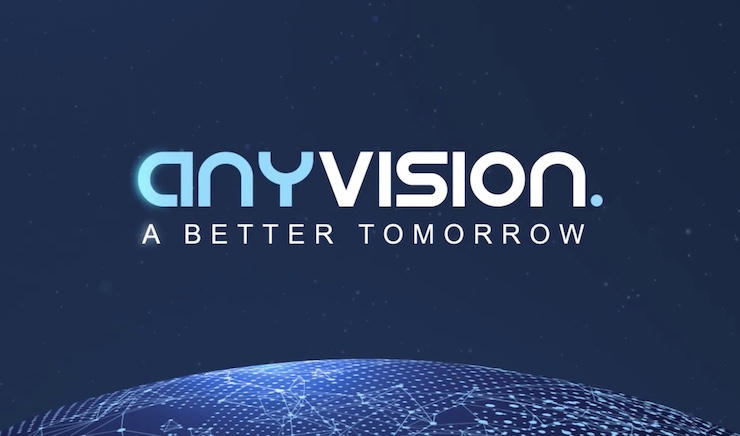
One of the biggest concerns the American Civil Liberties Union (ACLU) has had with drones, is that they fear drones will be used to spy on people, encroaching on their civil liberties. Police departments that use drones in the United States have all worked closely with the ACLU to assuage such concerns. Drones have become critical tools for police officers and emergency responders. Agencies like police and fire departments have promised that they will use drones in ways that protect civilian privacy laws. Emergency responders are using drones for search and rescue, evidence collection, suspect pursuit, traffic management, and situational awareness. Over the last few years, drone technology has advanced to now be capable of facial recognition, something that is not yet clear if it will be used in the United States.
In 2019, Tel Aviv, Israel artificial intelligence company, AnyVision filed a patent with the United States Trademark and Patent Office for drones being used in facial recognition security systems. The patent serves to protect the technology behind drone positioning to capture images that would be fed into AnyVision’s AI security program. Though there is no confirmation as to whether such technology will be used in the United States, AnyVision CEO, Avi Golan, said that having a patent in place is a step in the right direction for their company’s interests. In 2020, AnyVision joined forces with Rafael Advanced Defense Systems, Israel’s government owned defensive technology company, to create a new venture that would combine defensive securities with AI facial recognition drone processing.
This new joint venture is called SightX and it combines AnyVision’s and Rafael’s expertise in AI securities and drone defenses. AnyVision’s AI system can instantly recognize facial features. Images are uploaded to the system and when an individual passes through an AnyVision camera system they are identifiable within 0.2ms with only 0.1% false alarms. AnyVision has its AI facial recognition program in use for hospitals, manufacturing and distribution centers, banks, casinos, and high security office buildings. Individuals with permission to be at such locations can be quickly admitted without needing to come in contact with a security guard or admission personnel. Similarly, images of individuals not permitted at certain sites can also be identified. In a post COVID-19 world, being able to allow people into secure sites through contactless means has become a new normal.
With SightX, Rafael is running trials that would use AnyVision’s facial recognition with their military drone programs. Israel is a country that is under constant threat of war. Urban warfare is something Israeli police and military agencies face every day. Being able to identify whether someone in a crowd is on a watch list, or may be carrying a weapon benefits all Israeli civilians. “Identifying targets automatically has been operational for years in air forces and naval forces across the world,” said Shmuel Olanski, head of the innovation program center at Rafael, “but infantry forces weren’t able to benefit from it – until now.”
With a facial recognition equipped drone Rafael will have the ability to provide security in crowds, buildings, or areas deemed as blind spots. This could be done without putting human operatives at risk. It will also be a security measure that only costs around a few hundred dollars per unit as opposed to the thousands it costs to use standard military security programs. Rafael and AnyVision held a preliminary demonstration of SightX, but the technology is still a ways off. Hopefully, AnyVision’s patent on how to position drones will fill the gaps for SightX to become a reality.
The call for and acceptance of such technology is very different for the United States and Israel. The ACLU and other organizations in the US would most likely not allow drones with facial recognition to be used here, at least not yet. When AnyVision was in its startup phase in 2019, Microsoft invested $74 million in the company. After concerns about how the technology would be used, Microsoft had reservations as to whether they would stay involved with AnyVision. In response, Former U.S. Attorney General Eric Holder and his team at Covington & Burling ran an ethical audit at AnyVision. The results of the audit proved that AnyVision was not in violation of any ethical laws. Microsoft amicably pulled out of their dealings with AnyVision as they would not have a majority say in AnyVision’s future proceedings.
AnyVision agreed that it was in the best interest of both companies that they parted ways with Microsoft. With SightX, AnyVision now has a new focus to progress their AI security software. As to being able to apply their instant facial recognition to drones, Avi Golan understands that the technology hasn’t completely aligned yet. It’s a program that they will continue to pursue and he believes that one day the world will be ready for it. “I think it’s more futuristic technology,” he said, “but I want to have it in the back of my pocket once it’s more accepted by humanity.” The next step for SightX will be to integrate the AI software with a more stealthy and less obtrusive drone that can safely be flow in relation to the subject it needs to inspect.
|